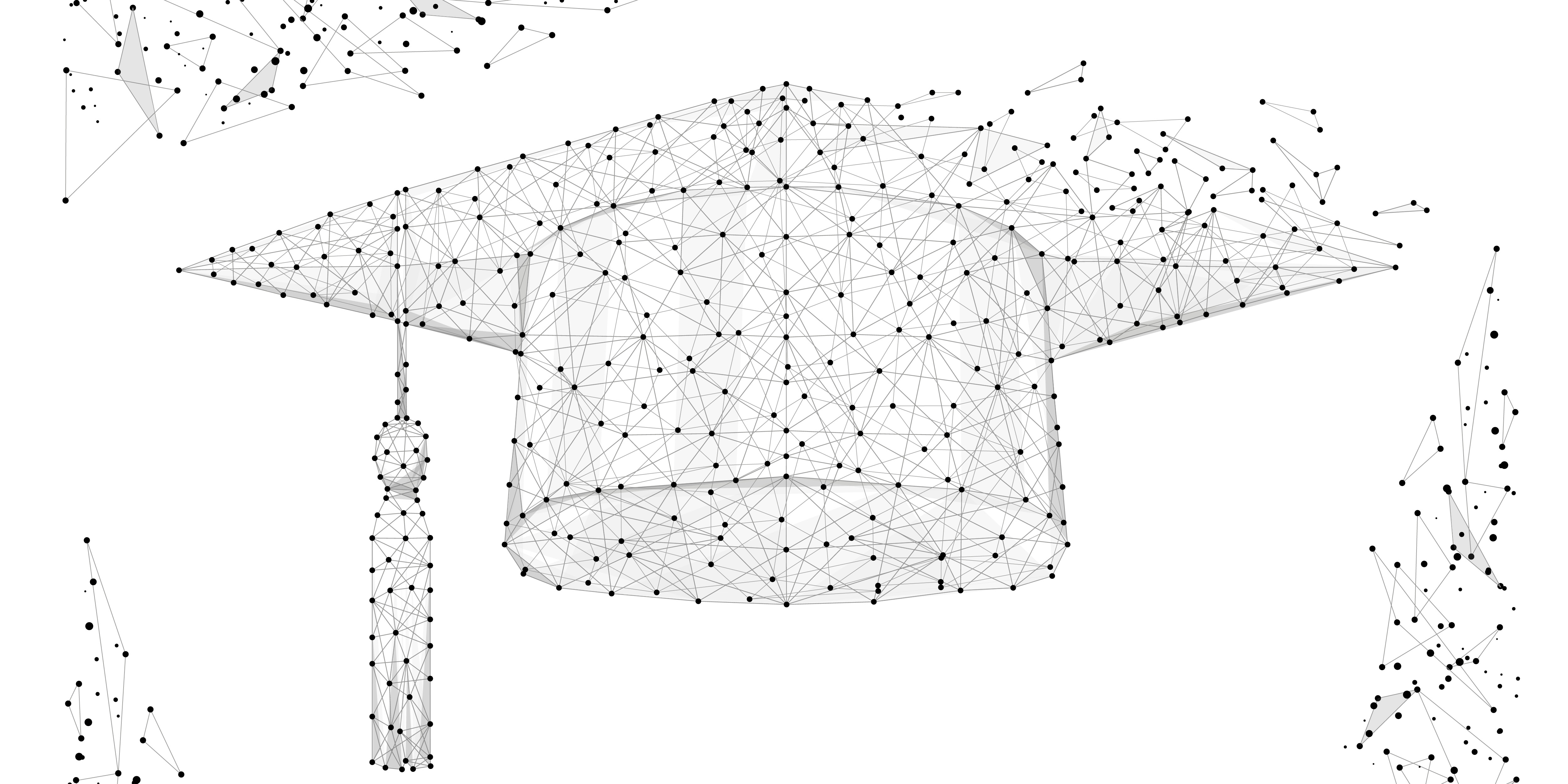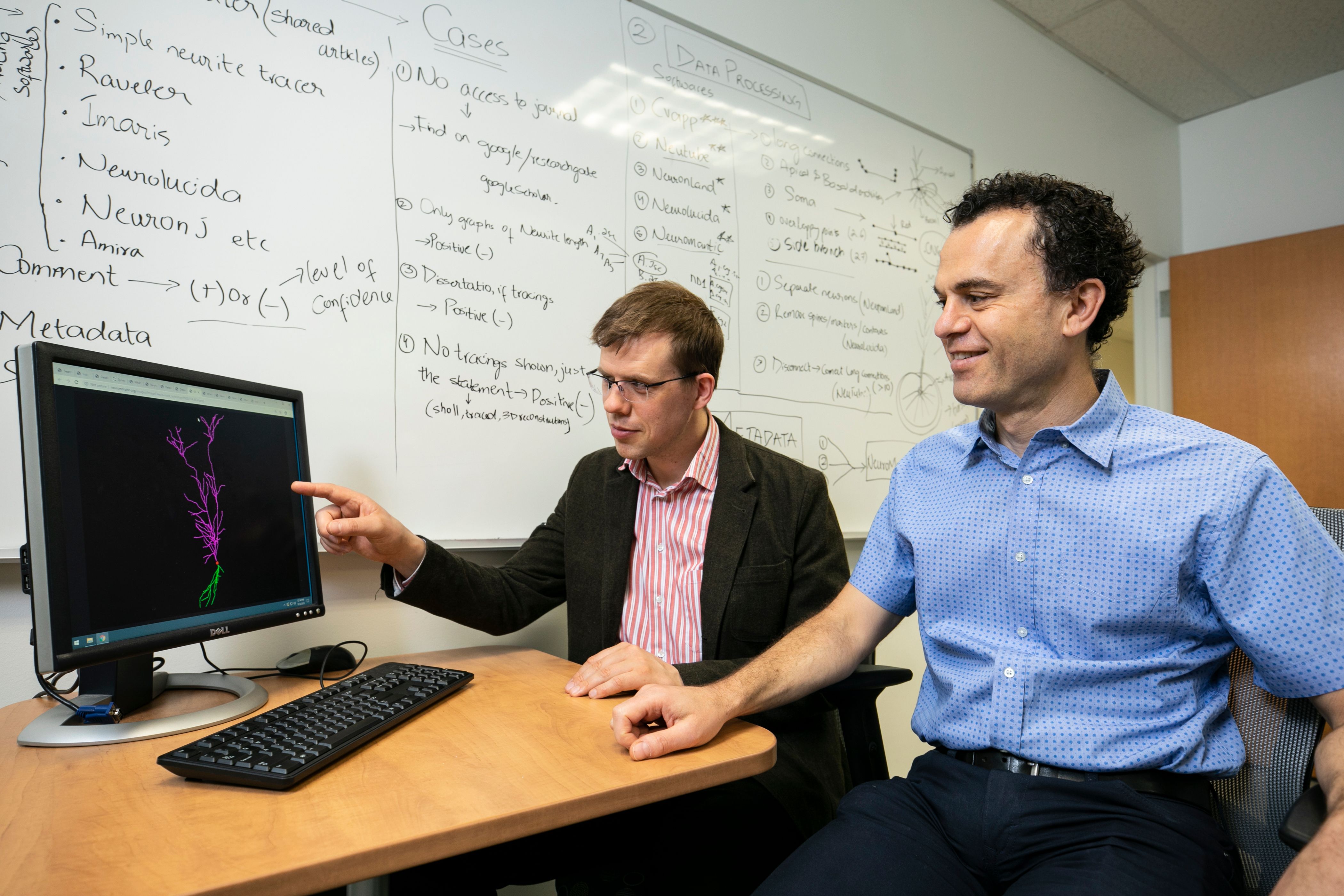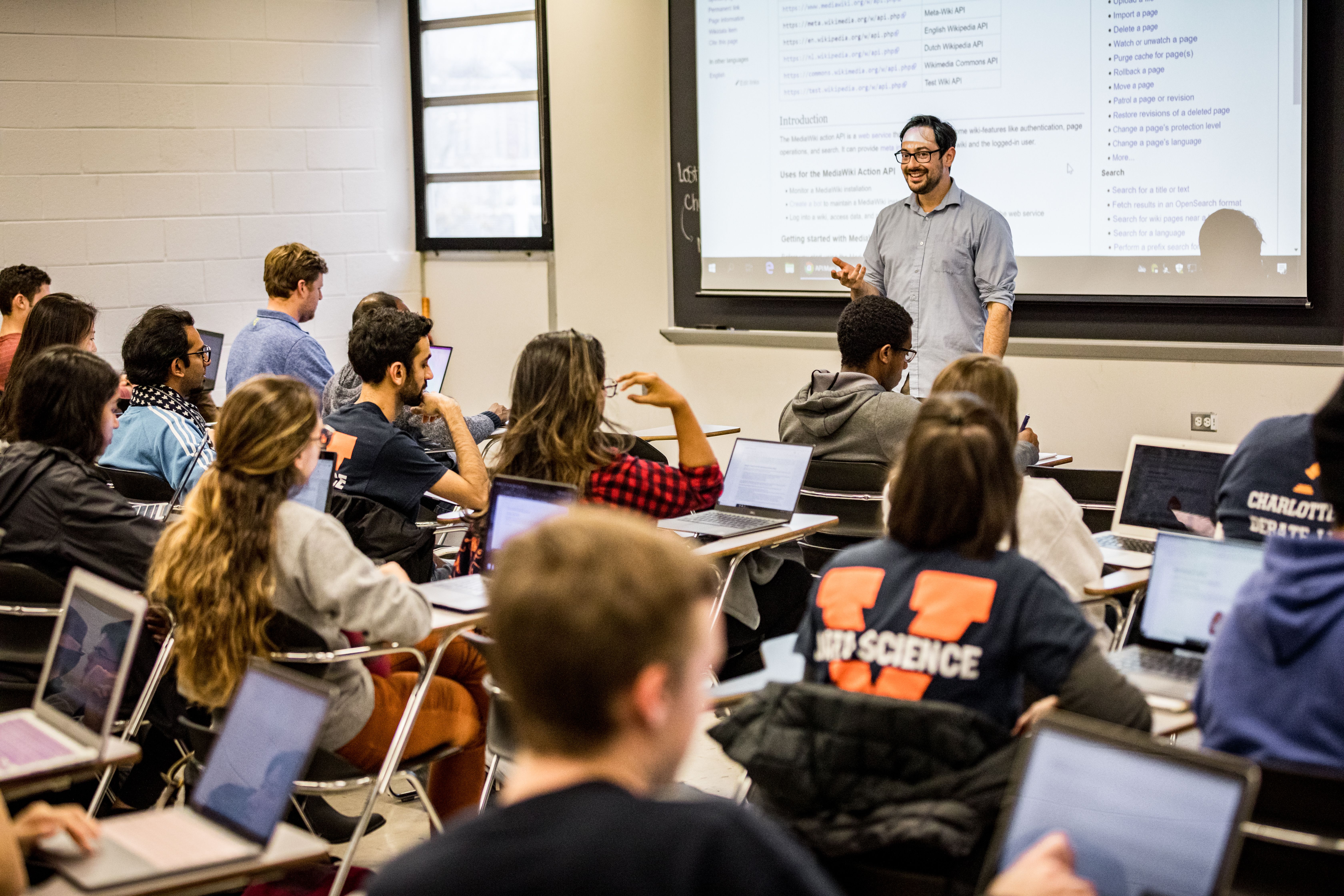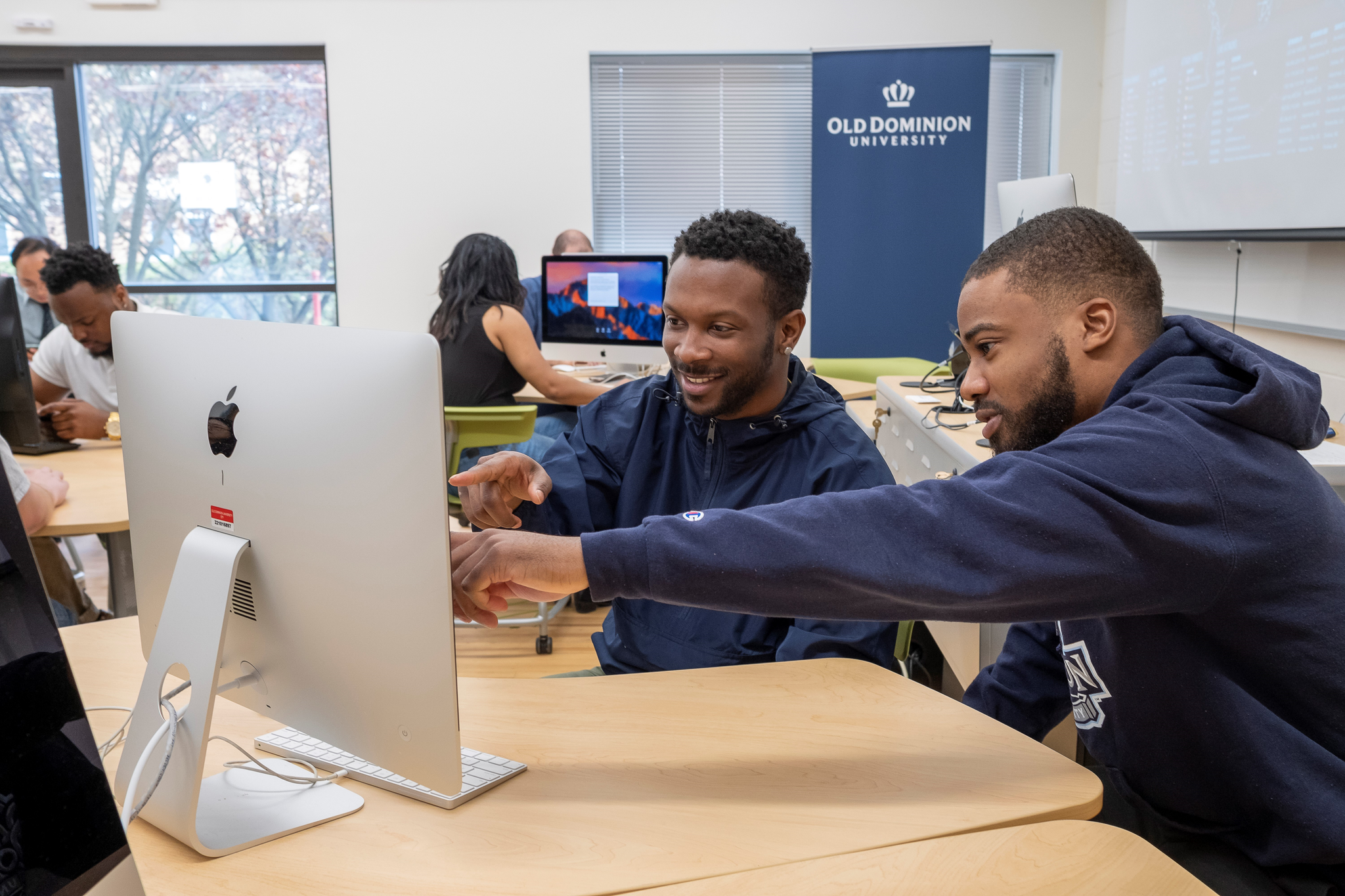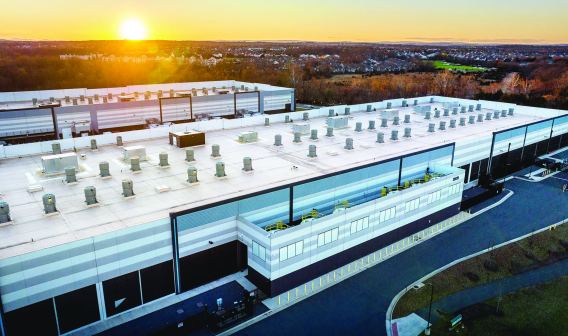Virginia Universities Prepare to Meet Tomorrow's Data Science Needs
In recent years, the increased amount of available data — 64.2 zettabytes (equal to 1 trillion gigabytes) were created globally in 2020, compared to 2 zettabytes in 2010, according to Statista — and ways to analyze and use it have escalated the demand for data science professionals to fill data analyst, business intelligence engineer, and other roles.
In Virginia — an East Coast tech hub that houses the third-largest tech industry workforce in the nation, totaling 315,000 people who make up the country’s highest concentration of tech talent — the need for qualified data science professionals is considerable. The Commonwealth currently has one of the highest concentrations of data scientist and mathematical science employment, according to 2020 research.
Recruitment platform Zippia ranked Virginia in 2020 as one of the top 12 locations where companies were actively looking for data scientists. A separate analysis suggests tech-related jobs in the state, fueled in part by employers’ interest in data science, may increase by more than 8,500 in 2021.
To help meet Virginia’s growing tech talent needs, the Commonwealth has committed $1.1 billion toward more than doubling the number of bachelor’s and master’s graduates in computer science, computer software engineering, and computer engineering in the next two decades. Nearly all of Virginia’s public four-year institutions are recipients of post-performance grant funding tied to their expansion of these degree programs.
As data science continues to grow, more and more of Virginia’s colleges and universities are working to equip undergraduate and graduate students with the skills that will be required to perform data science-related tasks in a variety of industries and positions — both today and in the future. A handful of these institutions are profiled here.
Virginia Tech
Virginia Tech’s Sanghani Center for Artificial Intelligence and Data Analytics, formerly known as the Discovery Analytics Center, will be housed in the first academic building at the university’s Innovation Campus near Amazon’s HQ2 in Northern Virginia. The center has served as a conduit to encourage and oversee cross-listed math, computer science, and other courses that comprise the university’s multi-department, collaborative data science and analytics programs at the undergraduate and graduate levels.
For instance, students pursuing M.S. and Ph.D. degrees can explore a graduate certificate in data analytics or in urban computing, which will prepare them to utilize data science methods to address local or national government design and policy questions, said Dr. Naren Ramakrishnan, the center’s director and a professor in Virginia Tech’s department of computer science.
The Sanghani Center supports community service-focused research, such as creating functionality to help parents navigate school zoning changes, and its courses run the gamut from foundational concepts to cutting-edge topics like deep learning. It also emphasizes ethical and societal issues underlying responsible data science.
“Suppose you’re using data science to make decisions about who should get a loan, or how insurance premiums should be set for a new customer,” Ramakrishnan said. “You can’t say, ‘I’m just developing my algorithms — my work stops there.’ When students graduate, they’re not just skilled technically, they have a little bit more holistic and grounded view of how what they’re doing affects real people and outcomes.”
Traditionally, the center’s data science and machine learning grads have been hired by tech companies. Recently, more have begun working at startups, financial firms, and other organizations, according to Ramakrishnan.
In the coming years, the Sanghani Center and the rest of the Innovation Campus aim to further support the data science, machine learning, and AI tech talent pipeline in Northern Virginia.
“It’s a good time to be doing data science and machine learning,” Ramakrishnan said. “I tell my students, ‘You couldn’t be in a better place in terms of the career growth you’re going to see and the types of skills that are going to be the most sought after in many fields.’ Whether it’s health care, finance, or even traditional domains like manufacturing, there are so many intersections with data science.”
George Mason University
In addition to undergraduate and graduate statistics programs, George Mason University’s (GMU) data science-related curriculum includes a computational and data science bachelor’s degree, as well as the data analytics engineering master’s program the school launched just a few years ago, according to Strategic Initiatives and Community Engagement Associate Provost Liza Wilson Durant, Ph.D. “[We recognized] the importance of data in solving engineering challenges, and that there’s a different layer of analysis required to apply data analysis to engineering challenges,” she said. “There’s more calculus, more coding involved. They have coursework in statistics, machine learning, cybersecurity, all from a data analytics perspective.”
Students pursuing a variety of majors can also earn the school’s Digital Technology Credential by taking additional courses that touch on topics such as data visualization to become more adept at handling data. Durant said that obtaining the credential also automatically qualifies students to receive GMU’s data analysis minor.
The structure of the credential program allows the school to adjust its curriculum quickly to meet short- and long-term industry needs, based on frequent feedback from students who are engaged in year-round internships, industry leaders on the GMU College of Engineering and Computing Advisory Board from the Department of Homeland Security, Lockheed Martin, and other organizations, and on the College of Engineering and Computing’s alumni board.
“We can tweak the content of those credentials — take a course out, add a course — very easily. The runway it takes to change a set four-year academic degree program is a little longer,” Durant said. “We’re able to tweak the credentials in real time so our students are getting what new trends, needs, and requirements we’re hearing from the community.”
University of Virginia
Graduate students have been able to pursue a data science master’s degree online or onsite at the University of Virginia (UVA) since its School of Data Science was formed in 2019.
The minor in data science the school debuted in spring 2021 marked another step toward offering data science programs at all three educational levels, according to Brian Wright, assistant professor and School of Data Science director of undergraduate programs, who said UVA is currently also developing a corresponding major.
Students are required to take courses in five categories in the data science minor program, touching on topics such as programming with data and accessing and storing information in databases. They also work on a series of projects in a final course that allows them to put what they’ve learned into practice.
The school created a number of new classes for the minor, while students can fulfill some of the requirements with existing classes. Since the minor’s introduction, 160 students with backgrounds ranging from traditional STEM concentrations to liberal arts have taken part in the program.
While the degree may not automatically land students a traditional data science job, it could position them ahead of other candidates for roles that now include computational components.
“If, for instance, people are graduating with a public policy, economics, or even an English degree, these computational skills are seen as an added incentive to bring that person on,” Wright said. “If students can help companies use data to advance their place in the market — or help nonprofits make better decisions, or the federal government write better policy — there’s a value proposition around the computational power associated with analyzing that data.”
Old Dominion University
When Old Dominion University (ODU) began creating its master’s program in data science and analytics several years ago, to get input on what skills students should obtain, administrators hosted a workshop with local industry members they felt might have data science talent needs.
Workshop participants mentioned a number of technical skills, according to the program’s director, Mohammad Zubair, Ph.D., such as knowing how to process, clean, and effectively visualize the data, and the ability to build statistical models to identify data trends and patterns. As a result, ODU designed its 30-credit-hour program, which launched in fall 2020, to feature five core courses, plus four courses and a capstone project from one of four available concentrations.
The required core consists of three computer science courses, including an introductory data science class and two statistics courses. The core courses deal with big data visualization and modeling, collectively helping to prepare students to apply data science techniques in a variety of disciplines, Zubair said, whether they end up managing health information, working in e-commerce, or being employed in a different field.
The program, which was developed with faculty across several departments, focuses on real-world data science applications, according to Elizabeth Smith, director of interdisciplinary academic and research initiatives at ODU’s Graduate School — another suggestion from participants at the initial planning workshop.
“They stressed the need for this rigorous core, but also balanced with problem solving and other kinds of critical thinking and communication,” she said. “We have tried to address that in the curriculum through requiring a capstone project. They don’t have to do a research thesis, but rather something more practical.”
Concentrations such as business intelligence and geospatial analytics provide instruction on specific data science use cases. The Data Science and Analytics program, Zubair said, also places an emphasis on soft skills.
“A [graduate] has to communicate with the management of the business,” he said. “They have to understand what the management wants to see — and unless you have effective communication with the business, you can’t be effective.”
Virginia Commonwealth University
Students in the weekend-based Virginia Commonwealth University (VCU) Master of Decision Analytics professional-track program come from a variety of backgrounds, according to Stephen Custer, Ph.D., the program’s director.
Roughly half have already utilized data science at some level and want more advanced tools; the other half consists of professionals such as lawyers and political scientists whose experience working with data, Custer said, may be limited to only entering it and producing standardized reports.
VCU’s weekend program serves as an option for students who hope to obtain a degree while working fulltime. Those looking for more scheduling and course flexibility can instead enroll in the university’s evening master’s program in decision analytics.
Unlike the 16-month weekend lockstep program, which has a predetermined curriculum, in the evening version, students can choose elective classes and select how many courses they’d like to take at a time.
Each track offers unique advantages, said Paul Brooks, professor, interim chair of information systems, and advisor for the evening track program.
“For the weekend program, they’re all taking the same classes together at the same time. One of the benefits is students are able to work on longer-term projects in groups,” Brooks said. “The evening program is more à la carte. People can take more electives, and they can specialize, if they have a particular field that they’re interested in.”
VCU also offers an evening master’s in information systems with a concentration in data science, and is currently in the process of developing data science-related graduate certificates, which may be in place by next fall. This could potentially help ease the demand for data science-skilled professionals in the area.
“It’s a seller’s market right now. There are many more positions out there than people to fill them,” Custer said. “Some are looking for pretty advanced levels of data science, which we turn out in our programs, but there are also a lot looking for entry-level data analysis to do specific jobs, and a certificate program can get people into those jobs. Some take a certificate program just because they want to get a foot in the door.”
